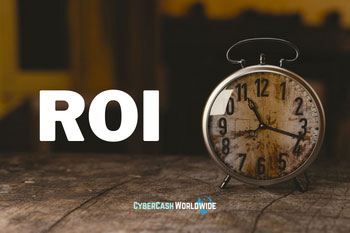For many older adults, retirement isn’t the end of their working life; it’s a chance to explore new business opportunities. There are dozens of creative and rewarding ways that seniors can stay engaged in their communities, earn additional income, and continue exploring new interests as they age. Unfortunately, finding viable business opportunities for an older adult can be challenging. That’s why I’ve put together this list of the top 10 business opportunities for older adults. Find out how you can turn your golden years into a thriving entrepreneurial venture.

Top 10 Business Opportunities for Older Adults
In recent years, there has been a growing trend of older adults becoming entrepreneurs. This is likely due to a combination of factors, such as increased life expectancy, improved health and wellness, and a desire to stay active and engaged in the later years of life.
There are many different businesses that can be well-suited for older adults. Here are 10 of the top opportunities:
1. Senior Care Services:
With the aging of the Baby Boomer generation, there is an increasing demand for senior care services. This includes in-home care, assisted living, memory care, and more.
2. Health and Wellness Products/Services:
Older adults are often more focused on health and wellness than younger generations. They may be interested in starting a business that provides healthy food options, personal training or fitness classes, or health-related products.
3. Technology Services:
Many older adults want to learn technology from people in the same age group rather than from young people. Mainly because youngsters teach too quickly and older adults find them hard to follow.
Of course, there are some advantages to learning from young people. They are often more up-to-date with the latest technology and can be very patient when it comes to teaching. However, many older adults feel more comfortable learning from someone who is closer to their own age and who understands the challenges that they face when trying to learn new things.
If you are comfortable with technology, you may be interested in starting a business that provides tech support or training to seniors.
4. Travel Planning:
As people age, they often have more time and resources for travel. A business that specializes in planning custom vacations or group tours can be appealing to this market.
5. Financial Planning:
With retirement on the horizon, many seniors need help with financial planning – from budgeting to investing to estate planning. Starting a financial planning business can be very rewarding – both personally and financially.
6. Home Improvement/DIY:
Older adults often have the experience, knowledge, and skills for home improvement projects. Starting a business that provides these services can be a great way to stay active and engaged in the later years of life.
7. Senior Living Consulting:
As more people age into their senior years, there is an increasing demand for knowledgeable advisors who can help seniors navigate the complexities of retirement planning and senior living options.
8. Pet Care:
With pet ownership on the rise, there is an increased need for pet care services. This could include pet sitting, dog walking, or even creating custom pet products such as treat baskets or personalized collars.
9. Creative Arts:

There's no denying that digital art skills are in high demand these days. With the popularity of social media and the ever-growing world of online content, it can be hard to compete with younger artists who are native to this digital landscape. But don't despair – analogue, handmade arts are still very much alive and popular among many people.
There is a certain charm and appeal to handmade goods that can never be replicated by mass-produced or digital items. In a world where we are constantly bombarded with images and information, taking the time to create something by hand can be a refreshing change of pace. It also allows you to tap into your own creativity and express yourself in a unique way.
Whether it’s writing, painting, photography, or any other creative pursuit – older adults often have more time to pursue their passions and share their talents with others through creative businesses.
10 Affiliate Marketing
If you're the type of person who doesn't like to be restricted by deadlines, then affiliate marketing is perfect for you. It's true that you'll need to spend a lot of time building your affiliate business before it really takes off. But at least you can do it whenever your schedule allows.
Once it's up and running, you can enjoy the freedom and flexibility that comes with it.
Did You Know You Already Have A LOT To Sell?
So What's Your Problem?

Why Start a Business Later in Life?
Why should you start a business in the latter half of your life stage? I think you already know the answer.
It’s much harder to get a job as you get older. Not age discrimination which is against employment laws, but the truth is, it’s harder to adapt the new way of presenting your skills during the job selection process.
Then why not take advantage of the benefits of starting a business? You have more life experience to draw from. You can make better decisions for your business and avoid some of the mistakes that young entrepreneurs make.
You are also likely to have more financial stability than younger entrepreneurs. This can give you a leg up when it comes to funding your business and weathering tough times.
Another reason is that older entrepreneurs often have a better network of contacts than their younger counterparts. This can be invaluable when it comes to getting advice, finding resources, and making connections.
Starting a business later in life can be incredibly rewarding. It can give you a sense of purpose and fulfilment that may be lacking in retirement or during other periods of downtime.
Things to Consider Before Starting a Business
The following are some considerations to make before starting your own business.
Do you have the time and energy to commit to a new business?

Starting a business is a huge commitment. Not only do you have to invest a lot of time and energy into it, but you also need to be prepared to put in long hours and make sacrifices. It's not something you can just dip your toe into - you really need to be all-in if you want to make it work.
So, before you take the plunge, ask yourself whether you're really prepared to commit the time and energy required. Can you realistically see yourself working 12+ hour days, often at weekends? Are you comfortable with making sacrifices in other areas of your life, such as your social life or hobbies? If the answer is no, then starting a business might not be right for you.
Are you physically able to handle the demands of running a business?
Running a business can be demanding, both mentally and physically. You'll need to be able to juggle a lot of different tasks and wear many hats. From marketing and sales to accounting and operations, there's a lot to do in order to keep a business running smoothly.
You also need to be prepared for the long hours. Many business owners find themselves working around the clock, especially in the early days when they're trying to get things off the ground. If you're not used to working long hours, it can be tough to adjust. You'll need to be able to handle the physical demands of being on your feet and working hard all day.
So, before you start a business, ask yourself if you're physically up for the challenge. If you are, then go for it! There's nothing more rewarding than being your own boss and building something from scratch. But if you're not sure that you can handle the demands, it might be best to rethink your plans.
Do you have the financial resources to invest in a new business?

To start a business, one must invest money. You'll need to research your idea, develop a business plan, and raise capital. Even if you're bootstrapping your business with personal savings or credit cards, you'll still need to be mindful of your spending.
You should have a clear understanding of your financial situation. Do some soul-searching to figure out how much risk you're comfortable taking on.
- Are you willing to put your savings at risk?
- Are you comfortable going into debt?
A long-term financial goal should also be considered.
- What do you hope to achieve with your new business?
- Do you want to build it up and sell it someday?
- Or do you want it to generate passive income so that you can retire early?
Your answer will impact how much money you should be willing to invest upfront.
No matter what your financial situation is, there's always some risk involved in starting a new business. But if you take the time to carefully consider your options and make smart decisions, you can increase your chances of success.
Do you have the experience and knowledge necessary to start and grow a successful business?
Starting a business is no easy feat. There's a lot of planning, research and funding that needs to go into it. Not to mention, you need to have the right team in place to make your vision a reality.
So, do you have what it takes to start and grow a successful business?
First, let's take a look at what it takes to get started. You'll need to have a great idea for a product that people will actually want to buy.
Then, do your market research and figure out who your target market is and what they're looking for.
Once you have all of that figured out, come up with a solid business plan and start seeking out funding.
Now, think about what it takes to keep a business going strong.
- This is where having the right team comes in. You may need employees who are passionate about your company and who are experts in their field.
- You may also want to be able to adapt as the market changes and always be on the lookout for new opportunities.
If you can do all of that, then you just might have what it takes to run a successful business.
Are you prepared to deal with the stress and challenges that come with being a business owner?

There's no sugarcoating it - being a business owner is tough. Not only do you have to worry about the day-to-day operations of your company, but you also have to be prepared for any challenges and stresses that come your way. It's not always easy, but it's important to be ready for anything that might come up.
Financial Stress
One of the biggest stressors for business owners is financial insecurity. It can be difficult to keep track of all the expenses associated with running a business, and you may find yourself worrying about money a lot. This stress can be compounded if you're not bringing in as much revenue as you'd like. It's important to have a solid financial plan in place so that you can weather any storms that come your way.
Hire Someone or Go It Alone
Another common challenge faced by business owners is employee turnover. You’re likely to be considering running your business all by yourself.
But if you were to hire someone, it could be tough to find and keep good employees, and every time someone leaves, it could disrupt your whole operation. You would have to have systems and processes in place to help mitigate this risk, such as clear job descriptions and effective onboarding procedures.
Common Mistakes Made by Older Entrepreneurs
There are a few common mistakes that older entrepreneurs make:
1. Not keeping up with technology:
As we age, it’s natural to become set in our ways and resistant to change. Unfortunately, this can mean falling behind the curve when it comes to technology – an essential tool for any business owner. Make sure you’re keeping up with the latest trends and technologies so you can stay ahead of the competition.
2. Not networking enough:
Another common mistake made by older entrepreneurs is failing to network enough. It’s important to get out there and meet other people in your industry, as this can help you make valuable connections that can benefit your business. Attend industry events, join relevant online communities, and reach out to potential partners or clients – don’t be afraid to put yourself out there.
3. Being too risk-averse:
While it’s important to exercise caution when starting a business, being too risk-averse can hold you back from achieving success. Sometimes, taking risks is necessary in order to achieve your goals. Don’t let fear hold you back - if you believe in your business idea, go for it!
How Can Older Adults Make Their Businesses Successful?
Here are the ways older adults can make their businesses successful.
Take Your Retirement Into Account
Let’s face this. You don’t have much working life left.
As you approach retirement age, it's important to have a business plan for the next 5-10 years. You need to think about what you'll do when you're no longer able to physically take on your business. Will you sell it? Pass it down to a family member? Close it altogether?
Have a solid plan in place so that you can make a smooth transition into retirement. Otherwise, you may find yourself struggling to keep up with your business and ultimately be forced to make decisions that you're not happy with.
Take The Age Group of Your Audience Into Consideration
When it comes to deciding on your target audience, the age group particularly matters a lot. For example, there’s no point trying to teach new technology to young people unless you are absolutely confident that you have more knowledge than them. On the other hand, if you engage with an older demographic, they may not be interested in new technology initially but may be more comfortable learning from you, rather than from someone in the younger generation.
In either case, taking the time to consider your target audience's age group is an important step in ensuring that your efforts are well-spent.
Have a Strong Online Presence
Social media is full of self-centered marketers trying to sell their products. No one pays attention if they don’t try to pay attention to what others are doing. In this day and age, you just have to have a strong online presence.
Try to prove that you are a trustworthy person for others to follow as much as you can.
- Be careful about what you post online. Think about how your words will be interpreted and whether or not they could reflect negatively on you. It's easy for things to be misconstrued online, so it's always best to err on the side of caution.
- Make sure your profile pictures and cover photos are professional and polished. First impressions count, so you want to make sure you're putting your best foot forward.
- Take the time to interact with others online. Show that you're interested in what they have to say and that you're willing to engage in thoughtful discussion. By being an active and engaged member of the online community, you'll quickly prove yourself as someone worth following.
- Provide excellent customer service and follow up with customers after they purchase products from your business. By following these tips, older adults can increase their chances of having a successful business.
Top 10 Business Opportunities For Older Adults: Conclusion
If you think older adults have fewer working opportunities, you’re wrong. There’s always something for everyone no matter what your interests or skill set may be. You may not be as quick a learner as you used to be, but the wisdom that you've gained throughout your lifetime is a powerful force.
You can find an opportunity that will allow you to make money on your own terms while still doing something that you enjoy. If you have been thinking about taking the plunge into entrepreneurship but weren't sure where to start, I hope the information in this post has helped you a little.
How I "Finally" Make Over $7,000 Monthly Income
"The most valuable thing I've ever done!"
